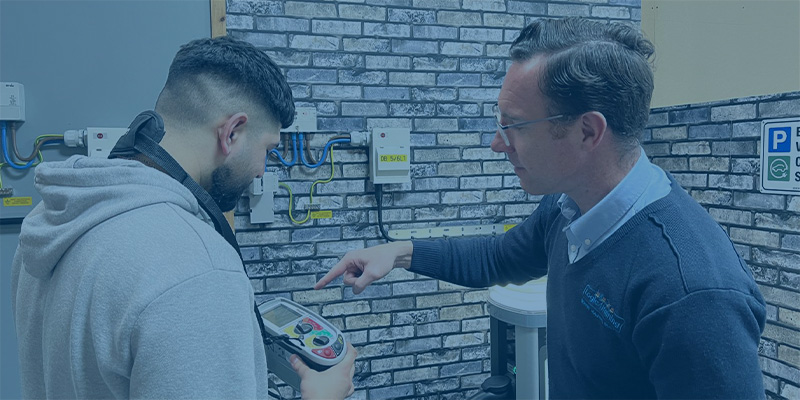
Electric Vehicle (EV) Charging Point Installation Course


Logic4training's Electric Vehicle (EV) Charging Point Installer course covers the installation of EV charging equipment in domestic, commercial and industrial locations; ideal for electrical installers looking to take advantage of the growing EV market.
We have partnered with Rolec, one of the world’s leading specialists in EV charging equipment and succesful candidates can be registered on their approved installer’s scheme.
The EV charging point course is for experienced electrical installers and covers all the key skills to design, install, commission and test domestic and commercial electric vehicle charging points.
The course has been developed with leading specialists in EV charging equipment design and manufacture, Rolec. On successful completion, candidates can be registered on Rolec’s national database of EV charge point installers and get referrals for installation jobs in their area.
This qualification also meets the competency requirement for installers to register on the Office for Low Emission Vehicles (OLEV) grant scheme, for charge points in the home or workplace.
Contact our Customer Service Team on 0208 845 7222 for more information.
The Level 3 RQF award (C&G 2921-31 or LCL Awards EVCE), covers all the knowledge and practical skills required to:
- Understand key requirements, advantages & disadvantages of different types of electric vehicle charging arrangements and equipment.
- Design and install electric vehicle charging equipment at domestic, commercial and industrial locations.
- Carry out Inspection, testing, commissioning and handover of electric vehicle charging equipment.
- System test and fault finding.
Upon completion of the training, candidates will be assessed through an online multiple-choice test and a practical assignment.
The course is for electricians who must hold the 18th Edition BS7671 and Initial Verification qualification together with 2 years’ experience in the electrical industry.
- City & Guilds 2382 18th Edition Wiring Regulations or equivalent qualification.
- Two years of experience in the electrical industry
- Have a qualification and experience in carrying out Initial Verification (Inspection and Testing) on electrical installations -this will be required to undertake the practical assessment.
You must be 18+ years to register for this course.
The course equips candidates with essential skills to:
- Design, install, commission, and test EV charging equipment at domestic, commercial, and industrial locations.
- Understand different charging arrangements and their advantages/disadvantages.
- Carry out inspection, testing, commissioning, system testing, and fault finding.
Qualified installers can:
- Join Rolec’s approved installer scheme for job referrals.
- Register on the Office for Low Emission Vehicles (OLEV) grant scheme to install subsidised charge points.
- Capitalise on the growing demand for EV infrastructure as petrol and diesel cars are phased out.
In the UK, there are the following chargers:
- Slow Chargers (Level 1/2): Typically 3kW to 7kW, ideal for home charging overnight.
- Fast Chargers (Level 2): 22kW chargers, found in public locations like supermarkets and car parks.
- Rapid Chargers (Level 3): 50kW and above, offering faster charging for longer journeys.
- Ultra-Rapid Chargers: 150kW to 350kW, for the quickest possible charging.
As of Q1 2025, the UK has over 76,840 public charge points, with rapid growth in ultra-fast charging hubs. Additionally, the industry has seen some innovations, such as charging stations integrating solar-powered chargers and battery energy storage systems.
The UK government plans to phase out petrol and diesel vehicles entirely by 2030. With over 780,000 plug-in vehicles already on UK roads as of early 2022, the need for reliable charging infrastructure continues to rise.
If this trend is going to continue upwards, the UK needs a reliable and wide-ranging charging infrastructure, providing a great opportunity for suitably trained electrical installers.
Smart chargers optimise energy use through features like:
- Scheduling off-peak charging to save costs.
- Balancing power loads for multiple vehicles.
- Wireless charging pads for hassle-free operation.
The course is based upon the IET Code of Practice for EV charge point installations and a copy of this book is included as part of the course.






